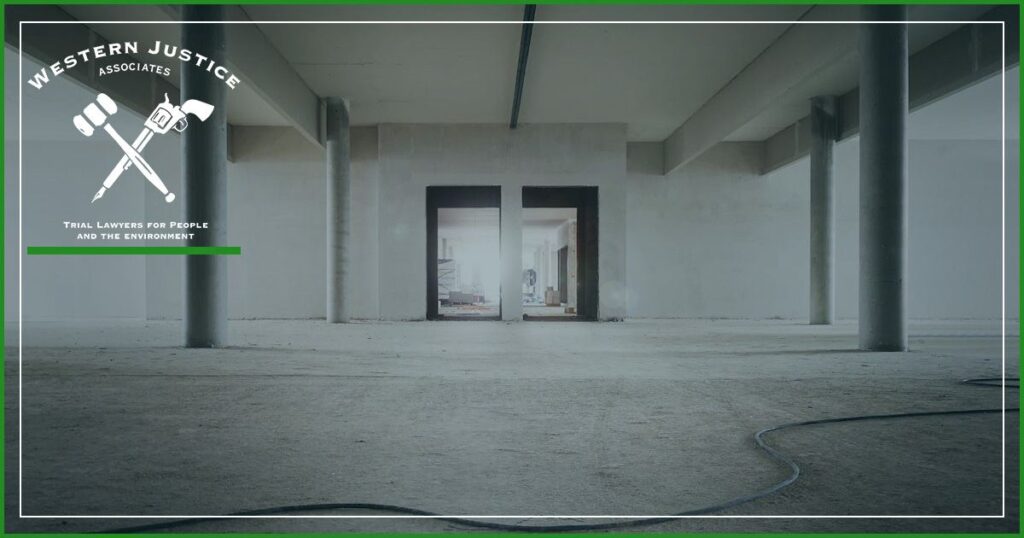Can You Sue a Contractor That Has Gone Out of Business?

You have probably heard a contractor horror story from a friend or neighbor where the contractor went over budget or performed substandard work. Now, you find yourself in a situation where your contractor did not deliver what they promised.
Unfortunately, when you seek a remedy, you’ve discovered that the contractor is no longer working. That leaves you wondering if you can sue a contractor that has gone out of business?
The short answer is, “Yes.” You can sue a contractor that has gone out of business and left behind construction defects that you are now dealing with. However, there will be challenges with pursuing that claim that might discourage you from moving forward. That’s why you need to bring your story to Western Justice Associates, PLLC.
Our experience with these types of claims provides us with a keen insight into how to track down and hold the at-fault contractors accountable.
What Are Examples of Construction Defects?
There are several potential construction defects that you might be dealing with in your claim. Which of the following would apply to your situation?
- Inherently dangerous design
- Failure to comply with building and zoning codes
- Defective seals on doors or windows
- Using defective materials
- Issues with wood flooring
- Substandard fire prevention features
- Compromised ventilation or exhaust systems
If Western Justice Associates, PLLC agrees to take on this type of claim, we’ll need to overcome the following challenges:
Proper Dissolution
The first issue to examine with a contractor you want to sue is whether they had a proper dissolution of their business. A contractor can’t simply declare they’re no longer in business; they must have it officially dissolved by the same government agency that approved the establishment of the business.
If a contractor did not file a proper dissolution, it will be easier for you and your attorney to file a lawsuit against them directly.
Statute of Limitations
Montana has a statute of limitations for filing a personal injury lawsuit. You have three years from the date of the injury to file the lawsuit. However, with a construction defect, there might not be a direct injury but instead a structural issue that led to property damage.
According to Montana law, you have ten years after the completion of the “improvement” to file a complaint.
Insurance Carrier
A certified contractor is required to carry commercial liability insurance. If that policy was in place during the time of your work, you and your attorney might be able to file an insurance claim against that carrier.
Subcontractors
There is a good chance that the contractor on your project hired subcontractors.
Typically, these would be electricians and plumbers who will be tasked with completing those portions of the project. If it can be established that the subcontractor was responsible for the construction defect, you can pursue legal action against them.
Personal Liability of Owners
There might be some scenarios where you are entitled to “pierce the corporate veil.”
That refers to pursuing your claim against the personal owner of the contracting company.
In many instances, a contracting business is set up as a corporation to shield the owner. However, if the owner engaged in provably fraudulent behavior, they might forfeit their right to a “corporate shield.”
Seeking Legal Counsel
When a contractor causes a major problem in your home due to negligence, it can be a significant disruption. In some cases, it can result in severe property damage or necessitate a forced evacuation. That is not something you should pay for.
The skilled attorneys at Western Justice Associates, PLLC can provide you with guidance about the challenges you might face pursuing a claim against a contractor who has gone out of business.
We are always upfront with our clients and won’t take on a case unless we’re confident of a successful outcome. If you’re property has been damaged by a contractor, we want to hear what happened.
Contact our office to schedule a complimentary consultation today.








